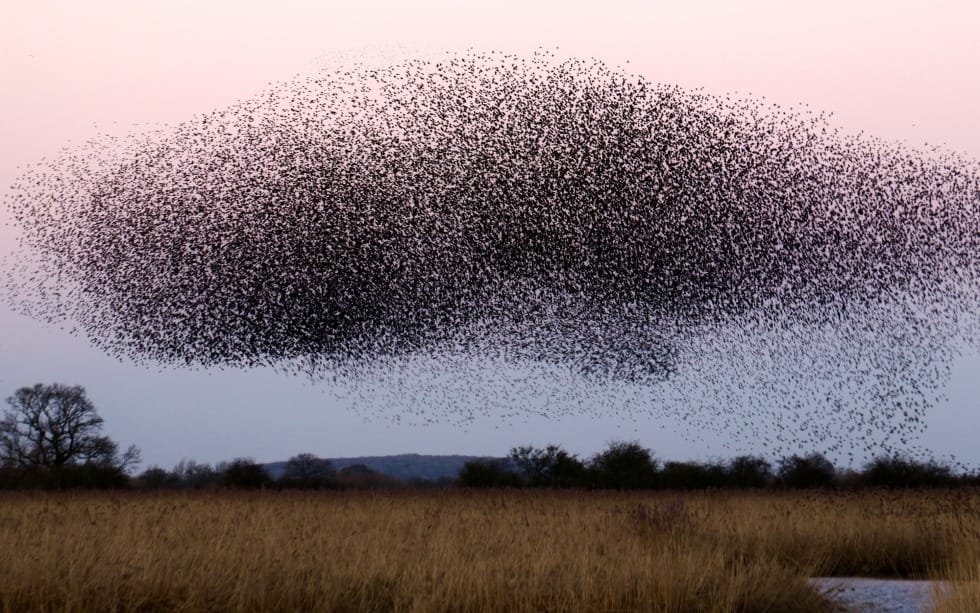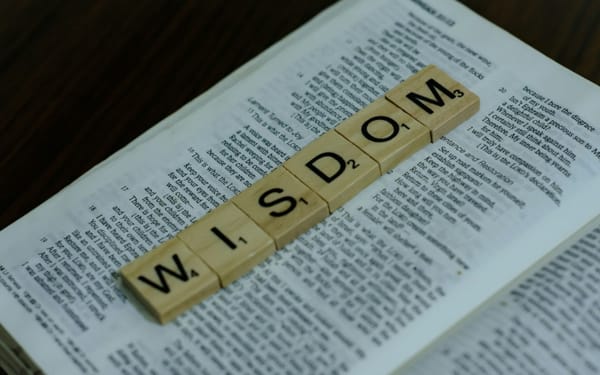How Does God Redeem My Wasted Years? (Joel 1-3)
Have you ever felt like your past disqualified you from a future with God? Joel shows that even wasted years can be restored by his grace.

Joel 1-3
Today's Scripture Passage
A Few Thoughts to Consider
Do you struggle with guilt over all the years you’ve wasted not following Christ?
If so, the book of Joel is for you. Joel’s name means “Yahweh is God.” He is a relatively unknown figure and is referenced only once in the New Testament. This book was likely written in the 8th or 9th century in the days of King Uzziah (792-740 B.C.) – the tenth king of the southern kingdom. You will recall that Israel was a divided nation at this time, separated into two kingdoms – the northern kingdom of Israel and the southern kingdom of Judah. Joel’s prophesies are directed to Judah and its capital, Jerusalem.
Assuming this is the case, Joel’s words came at a prosperous point in history. Patterson notes, “The era of the early eighth century B.C. was one of great expansion, militarily, administratively, commercially, and economically, a period the prosperity of which was second only to that of Solomon’s.” Joel is written mainly in poetry and uses language carefully and for effect.[1] The book of Joel can be broken into two sections. Joel 1-2:17 outlines the devastation the locusts have brought on the land, and Joel 2:18-3:21 celebrates God’s restoration and goodness.
The theme of Joel is “Day of the Lord,” and it is used five out of the nineteen times this phrase is used in the Old Testament. It signifies something big is about to happen. Dave Jenkins notes, “When the Old Testament refers to The Day of the Lord, it has in mind a near and far fulfillment.” For example, Joel 1:15 talks about the day of reckoning that God’s people are about to face, whereas Joel 2:30-32 points to the divine judgments that will be encountered at the end of this age. Unfortunately, in the time of Joel, Israel turned their backs on God. They were divided and fell into idol worship. In a way, they had become the Egyptians they once were liberated from, and their day of reckoning was upon them.
Most commentators take the locusts as literal and not symbolic of a great army. Locusts are a special kind of grasshopper. While “there are hundreds of species of grasshoppers, only a small handful of those are what we consider locusts.”[2] Locusts typically live solitary lives in their grasshopper phase in unpredictable environments, such as the arid regions of the Horn of Africa.
When conditions are favorable with abundant rainfall and moisture, locusts undergo a dramatic transformation known as the "gregarious phase." During this phase, locusts change their physiology, behavior, and appearance. They become attracted to one another and form large, coordinated swarms that can travel long distances. This ability to change in response to environmental conditions helps them survive and thrive.
In Joel, the locusts come in different forms. They cut, they swarm, they hop, and they destroy. David Baker notes, “When [the locusts] hatch and swarm, they can be as dense as four to five thousand insects per square meter, and they strip all green foliage, destroying crops and trees. This then depletes the next season’s fodder for livestock as well as grain for the family larder. With no large-scale ability to stockpile supplies, such an event places nations in grave peril.” The locusts devastate in different ways. Notice the progression:
- Joel 1:5-7: Drunkards can no longer drink because the vines are destroyed.
- Joel 1:8-10: The fields are destroyed, and there is no grain.
- Joel 1:11-12: The farmers can now no longer eat.
Joel 2:25 points out that God sent the army, while Joel 2:20 says he is the one who will remove them. So why did God send them? He sent them because his chosen people had turned to cult worship. Like many of the Israelites in Egypt, God’s chosen people began to believe in the power of other gods apart from Yahweh. But as David Hubbard says, “[Joel] saw in the locust-plague God’s means of correcting, of purifying, the cult and, beyond that, of preparing the way for the full blessing of Yahweh on the people through the gift of his spirit, the defeat of his enemies, and the permanent prosperity of Judah and Jerusalem.”[3]
After outlining a bleak picture, Joel calls the people to repentance, and Joel 2:18 presents a shift. God is jealous for his people. He longs for an exclusive relationship that will not be rivaled with others. God is here to deliver. Notice his response. As in verse 12, it is gracious and kind. He extends an invitation to repent even before Israel has shown remorse. This is who God is. He is gracious, merciful, slow to anger, and abounding in steadfast love (2:13).
Then, Joel 2:25 offers these powerful words, “I will repay you for the years that the swarming locust ate, the young locust, the destroying locust, and the devouring locust—my great army that I sent against you.
A Meditation to PRAY
Praise | Heavenly Father, I praise you for your incredible faithfulness and boundless mercy. You are the God who restores and redeems, turns our losses into gain, and brings beauty from ashes. Your love and compassion are unwavering, and I thank you for your constant presence in my life.
Release | Lord, I release all my worries, fears, and regrets to you. I surrender the years that the locusts have consumed—those times of hardship, loss, and despair. I let go of the pain and the sorrow that have weighed me down, trusting that you will bring restoration and healing.
Ask | Father, I ask for your restoration in my life. Just as you promised in Joel 2:25 to restore the years that the locusts have eaten, I ask that you bring renewal and revival to the areas of my life affected by struggle and hardship. Please fill my heart with hope and my soul with peace, knowing that you are working all things together for my good.
Yield | Lord, I yield to your perfect will and timing. I trust in your promise of restoration and choose to walk in faith, believing that you will bring about a greater good from my past difficulties. I open my heart to your guidance and direction, ready to follow wherever you lead.





